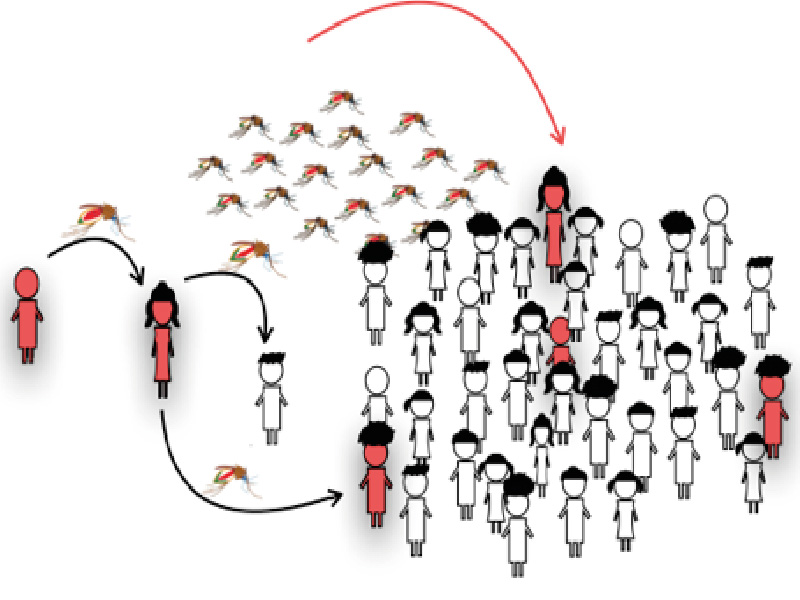Vector-borne diseases are caused by pathogens transmitted among hosts by intermediate species, primarily arthropods such as mosquitoes or ticks. Extensive approaches have been developed to study the transmission dynamics of such diseases, yet the majority of these classical models focuses on the burden caused in the host, paying little attention to the physiology of the vector itself.
In the case of Malaria however, it is known that physiological properties of the vector, such as its immune system, development, and reproduction, play a pivotal role in shaping the parasite’s virulence in the human host. Therefore, it is crucial to study the role of the vector in regulating the development, transmission, and evolution of a pathogen.
We develop an individual-based simulation framework that incorporates key aspects of the vector physiology and predicts infection and transmission dynamics within a human population. This interdisciplinary approach provides us with new concepts for unravelling the fascinating vector-host–pathogen interactions and, ultimately, inform novel intervention strategies in the fight against vector-borne diseases.
Paola Carrillo Bustamante
PhD en Biología Computacional
Max Planck Institute for Infection Biology
Dr. Paola Carrillo Bustamante studied Electrical Engineering at the Karlsruhe Institute of Technology, in Germany. She obtained her PhD in Computational Biology at Utrecht University in The Netherlands, and has since continued her scientific career in Germany with Postdoctoral positions at Heidelberg University and now at the Max Planck Institute for Infectious Biology. As an experienced theoretical biologist, Dr. Carrillo Bustamante has focused on Immunobiology, studying various complex systems, including the evolution of the immune system, the complex spread of HIV-1 in tissue, and the effect of therapies during hemorrhagic fevers. Her current line of research involves the complex transmission events in vector-borne diseases, specifically Malaria.

